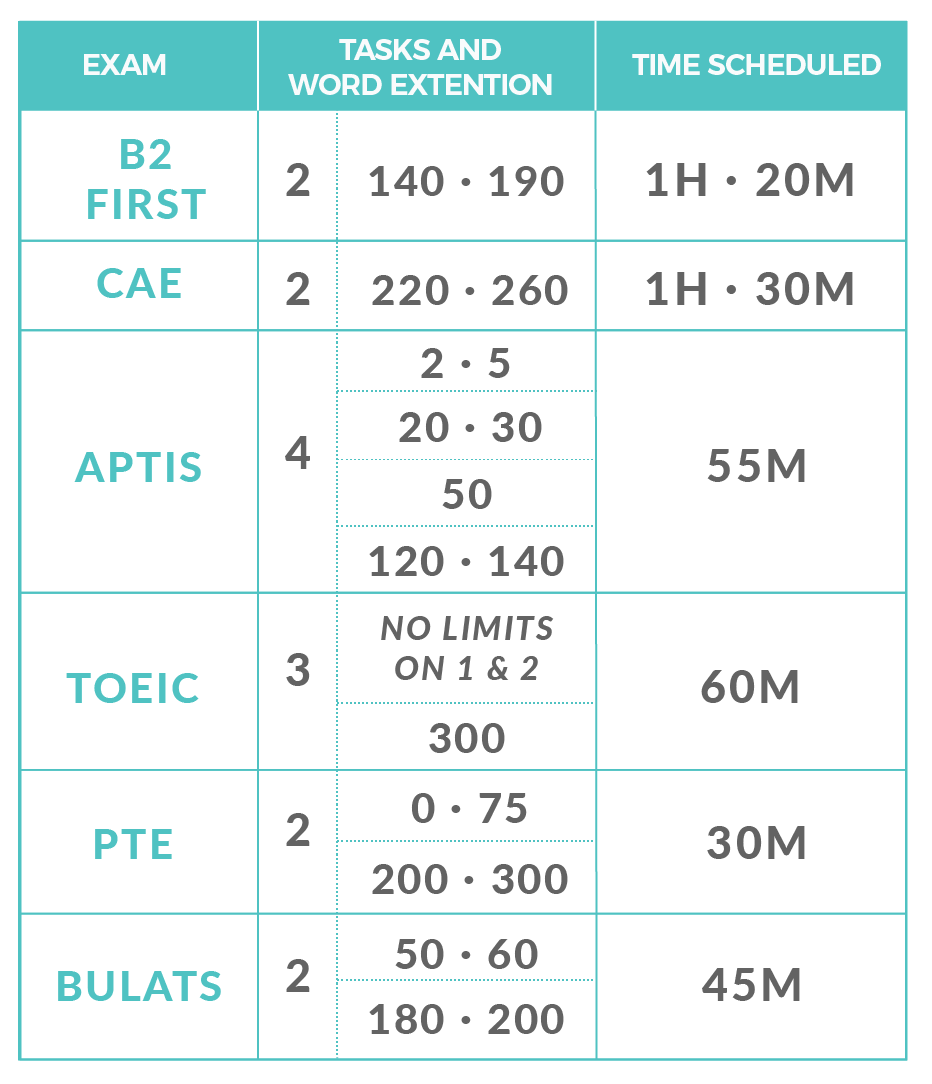How this part of the test works
As its name indicates, this section will assess the level and proficiency of the candidate's writing ability.
Before you start with your exam, you will be given an instruction sheet that contains the instructions for the tasks you have to develop. It is essential to read it carefully; if you have any questions, you can ask the person in charge.
The time and format will vary depending on the type of exam. You will also be required to demonstrate different types of writing, such as essays, articles, emails, reports, reviews, and even text messages.
In the following comparison table, you will see some of the most important details of the exams featured on this level:

Remember, all of this information and the specific details for this exam are included in the instructions sheet.
Now let's look at some tips that may help you to present your written exam perfectly.
- You can prepare and refine your writing by reading different kinds of texts on the Internet: academic essays and articles, reports, reviews, email and text messages, etc.
You can also review some of the material given on the website of the exam you are going to take. The examiners usually offer older versions of the tests as practice material, so candidates can practice and feel prepared for the test. - Create a writing plan. Consider the structure of the text you will write and establish the way you are going to present it: How long will the introduction be? How many ideas are you going to present? Does it have a hypothesis?
Develop your ideas about the main topic and use the correct vocabulary. - If you see yourself facing "blank page syndrome”, try brainstorming. This might help you find a path for your writing.
Don't worry if this happens. It is a pretty common situation due to the pressure of this important exam. Although these feelings are normal, don't let the anxiety take you off course. Instead, try to control it by doing some breathing exercises.






